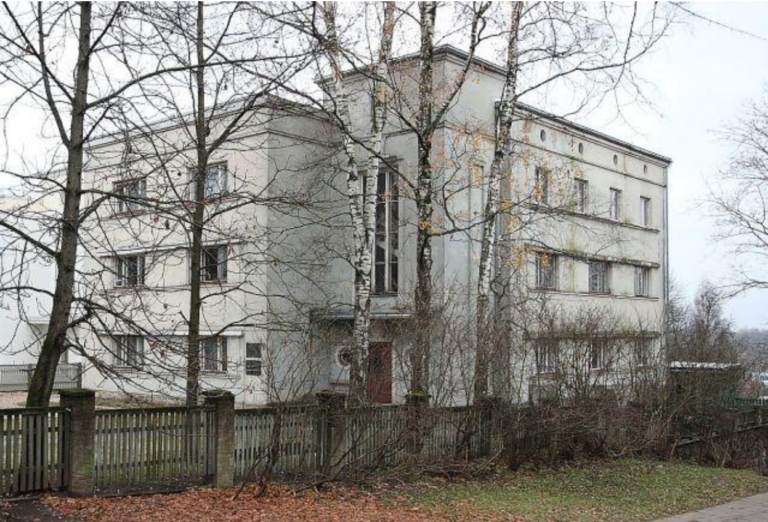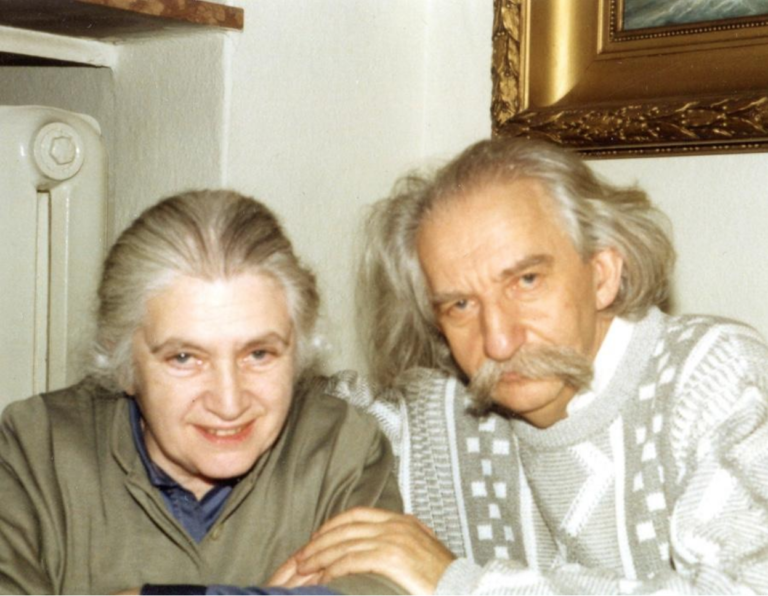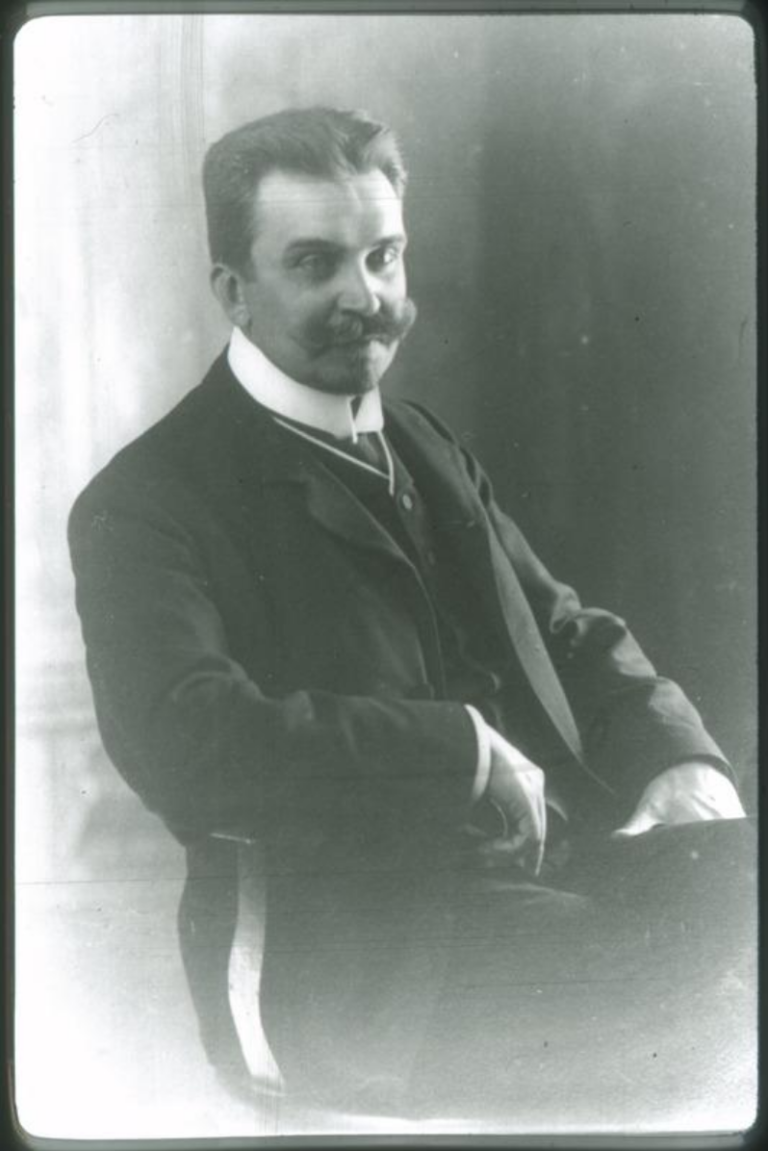
7 Laulupeo Avenue (Photo: Egle Tamm)

Zara Mints and Juri Lotman (jurilotman.ee)

Karl Menning (ETMM _ Fk 843/d)
Laulupeo pst 7
- The residence of the theatre figure Karl Menning and the professors Juri Lotman and Zara Mints.
7 Laulupeo Avenue and Juri Lotman, Zara Mints, and Karl Menning
This house on the slope of the Emajõe valley at 7 Laulupeo Avenue, which was designed by architect Ernst Ederberg in 1937, was initially built as a two-storey building. The third floor, skilfully integrated to the rest of the house, was added to the apartment building in 1957.
Throughout its history several well-known people, including quite a few who were connected to the theatre and especially to the Vanemuine theatre, have called this house their home. Perhaps the most famous of them is the manager of the Vanemuine theatre (in 1906-1914) and diplomat Karl Menning (1874-1941). The plaque which was installed onto the building’s wall in 1970 is dedicated to this man.
This building was also the last home of a couple of renowned professors, semiotician Juri Lotman (1922-1993) and the literary scholar, Zara Mints (1927-1990). The building’s location was not ideal for an elderly resident though, as the road to the city centre stretched over Jakobi Hill which was steeper in the 1980s than it is today. Contemporaries remember that even buses struggled to climb up that hill. When it was slippery outside it was not rare for people to fall over on the hill, and Mints and Lotman both had their own painful experiences to prove this. On one occasion Lotman was even taken to the accident and emergency department with a fracture, at which point he heard that the academician Ariste had also recently broken his arm at the same spot.
As was the case for almost all of the memorable and charismatic lecturers in Tartu, the academic sphere of Lotman and Mints also expanded into their home, as they often hosted students, colleagues, and cultural figures in their apartment. Juri Lotman was known for treating all his students respectfully and, according to the professor of semiotics, Peeter Torop, even a first-year student was a colleague for Lotman. The atmosphere in their home was obviously especially intellectual. Nevertheless, their grandchildren remember that this couple always had time to play with the children and take care of them, in spite of their great intellectual work. Rebekka Lotman remembers that her grandfather was the one with the excellent cooking abilities. It remains a conundrum how the couple managed to enjoy such an active domestic life in spite of engaging in demanding academic work.
Be sure to watch this particular episode of the television programme, ‘Vestlusi vene kultuuriloost’ (‘Conversations about Russian cultural history’), which includes Juri Lotman, entitled ‘Seltskondlik elu’ (‘Social life’).